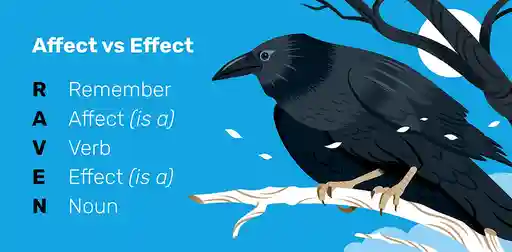Last updated on Aug 09, 2023
Developing Your Author Brand: 6 Ways to Showcase Your Unique Writing Identity
By Harry Bingham, Jericho Writers
 Harry Bingham is the founder of Jericho Writers, a company offering writers expert editorial assistance. He has written a variety of books over the years, notching up multiple six-figure deals and relationships with each of the world’s three largest trade publishers. His work has been critically acclaimed across the globe and has been adapted for TV. He’s also written non-fiction, short stories, and has worked as a ghost/editor on a number of exciting projects. Harry also self-publishes some of his work, and loves doing so.
Harry Bingham is the founder of Jericho Writers, a company offering writers expert editorial assistance. He has written a variety of books over the years, notching up multiple six-figure deals and relationships with each of the world’s three largest trade publishers. His work has been critically acclaimed across the globe and has been adapted for TV. He’s also written non-fiction, short stories, and has worked as a ghost/editor on a number of exciting projects. Harry also self-publishes some of his work, and loves doing so.
In the vast world of publishing, crafting compelling stories is just the beginning. To truly connect with readers and make a living from their work, authors need more than just great writing skills — they need a powerful author brand. Your author brand is the essence of your writing identity, the magnet that attracts readers and sets you apart from the crowd.
Whether you're conjuring up a high fantasy epic or novels rooted in stark reality, this post can help you understand the potential of author branding and provide actionable strategies for developing your own. Let’s dive right in.
What is an author brand?
An author brand is a distinctive image or identity that an author portrays to their audience. It's a broad spectrum encompassing everything from the themes you delve into in your writing, your distinct authorial voice, your online persona, to the way you engage with your readers. It's your personal trademark in the literary world, separating you from the masses and establishing you as a recognizable figure to your readers.
Why is this significant? In the cut-throat realm of publishing, a robust author brand can be the game changer that helps you rise above the masses. It helps you attract and retain a faithful readership by offering consistency and a sense of familiarity. When readers see your name gracing a book cover, they should know what to anticipate. This expectation can translate into increased sales and a dedicated fanbase.
Spending time on developing your author brand can benefit your creative process and your marketing. By comprehending your brand and your public image, you gain a clearer understanding of your writing strengths, your passions, and the type of stories you are inclined to narrate. In this way, your brand can act as a compass, directing your writing journey toward a rewarding destination.
✅
What's your book marketing IQ?
Test your skills here!
How to develop your author brand
1. Make sure your writing is memorable
The cornerstone of any author brand? Your writing, of course. The single biggest brand asset you bring to the table is the quality of your work. While marketing techniques can attract readers to anything you've published, your storytelling skills will keep them coming back for more.
Let's put it somewhat commercially: your writing is the product you're selling, and it needs to meet your customers' (the readers') expectations. That means it should honor your list of writing essentials — those elements that define your writing style and voice. Whether it's intricate worldbuilding, realistic dialogue, or thought-provoking themes, these essentials should shine through every piece of your writing.
Ask yourself whether your writing satisfies your ideal reader — someone who’s a fan of your genre, relates to your characters, or shares your interests or values. When your ideal reader picks up one of your books, they should find exactly what they're looking for, be it entertainment, inspiration, or a new perspective.
What if your writing isn’t quite there yet? The expertise of a professional editor can provide you with invaluable feedback, not to mention knowledge you need to elevate your writing. After all, crafting compelling stories is a journey, and every step you take towards honing your craft is a step toward strengthening your author brand. Don't shy away from seeking the help of a writing course to further hone your skills — it can be a gamechanger in your authorial journey!

NEW REEDSY COURSE
How to Write a Novel
Enroll in our course and become an author in three months.
2. Define the world of your books (or series)
The second crucial element of your author brand is the world you've created within your books or series. The physical setting or the time period aren’t the only ones that matter; it's about the essence of your fictional universe — the atmosphere, the rules, the themes, the conflicts, and the values that define it.
Each series you write, whether it be a duology or a ten-volume franchise, should have its own distinct brand architecture. Let's say you write geo-political thrillers: what sets your work apart from the sea of other thrillers out there?
- Is it the unique blend of intrigue and action?
- The nuanced depiction of political power plays?
- Or the unexpected twists that keep readers on their toes?
Identify what's essential to your fictional world and jot it down. For example, in creating Middle Earth for The Lord of the Rings, J.R.R. Tolkien focused on detailed geography, distinctive languages, and various races with their own cultures and histories. From these cornerstones, he built an expansive and immersive world that continues to captivate readers to this day.
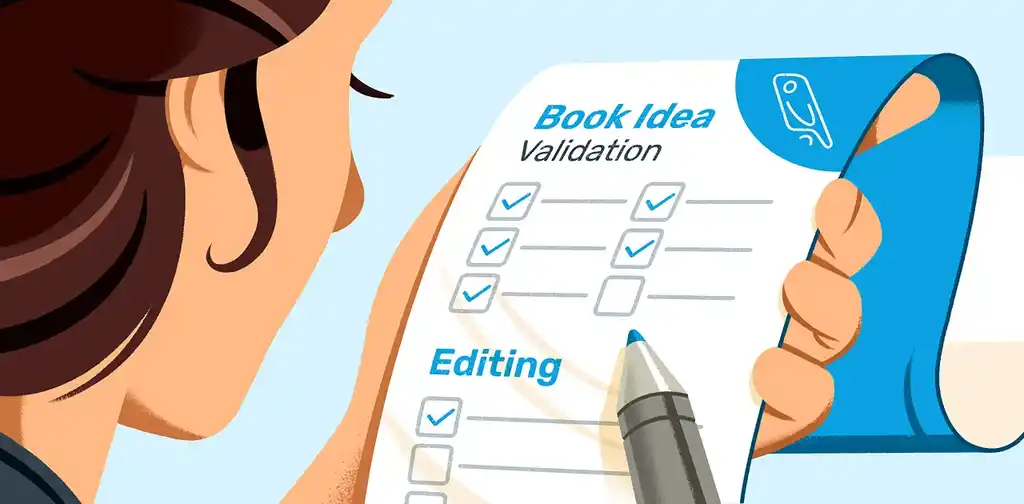
FREE RESOURCE
Reedsy’s Book Marketing Checklist
Tick all the boxes, from ads to networking to social media and beyond.
Remember, all your branding efforts must align with this list. It's going to function as your blueprint, ensuring consistency across your marketing materials, book covers, author bio, website, and more. It’s this consistency that creates a cohesive brand that resonates with your readers, making your series memorable and enticing to those who are yet to discover your work.
3. Know your ideal reader
Picture your ideal reader:
- Who are they?
- Are they male or female?
- What's their age?
- What interests do they have?
Understanding your target audience can significantly influence your storytelling in addition to your marketing approach, and, by extension, your author brand.
Free course: Finding your target readers
Identify your target readers, find out where they 'live', and get them to buy your book. Get started now.
Some authors even go as far as crafting a mini-biography for their ideal reader. This can be a powerful exercise that helps you understand their motivations, their preferences, and their world. It's like creating a character for your novel, except this character is on the other side of the pages, eagerly devouring your words.
Here's the crucial part: every aspect of your branding should appeal directly to your ideal reader. From the themes you explore in your books, the language you use on your website, to the images you post on social media — everything should resonate with them. For example, Brandon Sanderson shares regular updates on his work progress on his website and engages with fans on Reddit. He often dives deep into his writing process, discusses his magic systems, and answers fan queries about his works. This direct interaction enhances his brand and deepens his connection with his readers.
However, it's important to avoid author branding mistakes whenever you can. Unless your writing has something to do with funny cats, steer clear of sharing funny cat videos on your social media. And don't fret if your branding puts off non-ideal readers. Trust me, that is a good thing. By targeting a specific audience, you'll attract devoted fans who truly appreciate your work. After all, successful branding isn't about pleasing everyone; it's about creating a strong connection with the right people.
4. Invest in your cover and visual assets
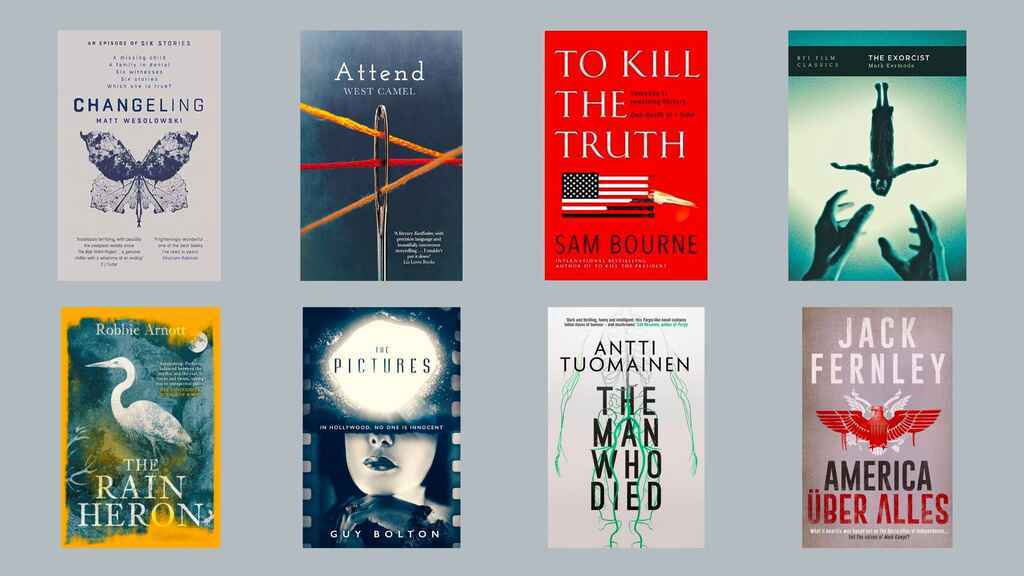
Although the old saying asks us not to judge a book by its cover, let's face it — most of us do. That's why your book cover is the most important visual asset you create. Since that’s the first thing potential readers see, it plays a crucial role in the decision to pick up your book.
Here’s a checklist of criteria your book cover needs to meet:
- Aligned with your genre: your cover should instantly connect with your target readers and clearly signify your book’s genre.
- Legible, clear typography: the title and author name should be legible and striking, even when displayed as a thumbnail.
- High-quality images/illustrations: professional, high-resolution images or illustrations significantly enhance your cover's appeal.
- Simple: a cover with too many elements can be off-putting.
- Smart color palette matters: your cover should use colors that reflect the mood or theme of your book and stand out on online listings.
- Professional: a professional cover designer can guarantee your cover doesn’t fall short of industry standards.
Your cover design must appeal directly to your Ideal Reader, capture the essence of your book and pique the interest of the readers you are targeting.

Get an amazing book cover
Let readers judge your book by its (professionally-designed) cover.
While your branding should be sympathetic to your cover, it shouldn't replicate it directly. You might be tempted to use the stunning cover of your first book as the hero image (i.e., the one displayed most prominently) on your website — but you'll release more books, and people can read books out of order.
So, what's the solution? Choose an image that "rhymes" with your covers and doesn’t just duplicate them. The image should reflect the overall feel of your brand, tying in with the themes, style, and tone of your books.
This gives you the flexibility to evolve your brand as you release new books, maintaining a consistent visual identity.

FREE RESOURCE
Author Website Checklist
Create a digital headquarters for your books (and your fans!)
5. Build your email list
In the fast-paced digital world we live in, one of the mightiest tools an author can wield (besides their keyboard) is an email list. It's a direct line to your readers that allows you to share updates, build connections, and foster a community around your work.
Your email list is more than just a marketing tool — it's an extension of your author brand and an invaluable way to grow your platform. Every email you send should sync with the world of your books and appeal directly to your Ideal Reader.
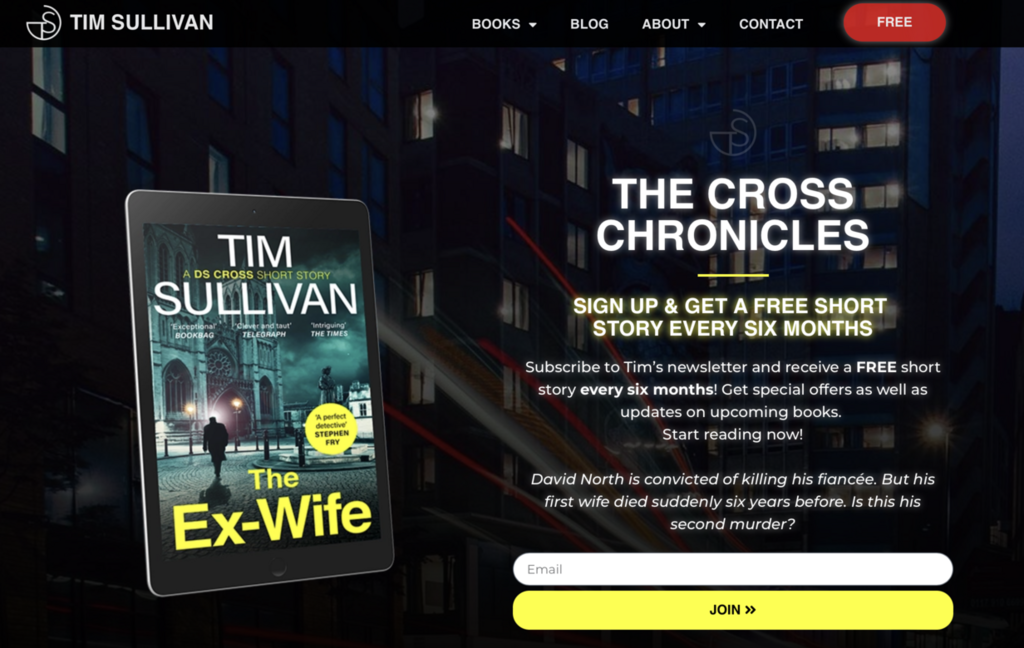
Don’t only share news about your upcoming releases — provide content that enriches your readers' brand experience such as exclusive sneak peeks, behind-the-scenes insights, or discussions about the themes and ideas explored in your books.

FREE COURSE
How to Build Your Author Mailing List
Learn how to connect with your audience and sell more books with email.
Build an email list by offering something of value to your readers in exchange for their email addresses: a free short story, a preview of your upcoming book, or a reader's guide to your series.
Once you've started building your list, it's essential to respect your subscribers' inboxes. Be consistent with your email updates but avoid bombarding your readers with too many messages. Also, make your emails engaging and reader-friendly. Use compelling subject lines, keep your messages concise, and always include a clear call to action.
Remember, an email list is a long-term investment. It might take some time to grow, but once you have an engaged list of subscribers, it can be an invaluable asset for your author brand.
6. Make the most of social media
While your email list provides a direct line to your readers, the potential of social media to extend your reach should not be overlooked. Platforms such as Twitter, Facebook, and Instagram offer unique opportunities for you to engage with a wider audience, interact with your readers in real time, and strengthen your author brand.
Like your email list, your social media presence should align with your book's universe and appeal to your Ideal Reader. Share content that reflects your brand and resonates with your target audience. This could be an insight into your writing process, a discussion prompt about a theme in your book, or a fun poll; your posts should enrich your readers' experience with your brand.
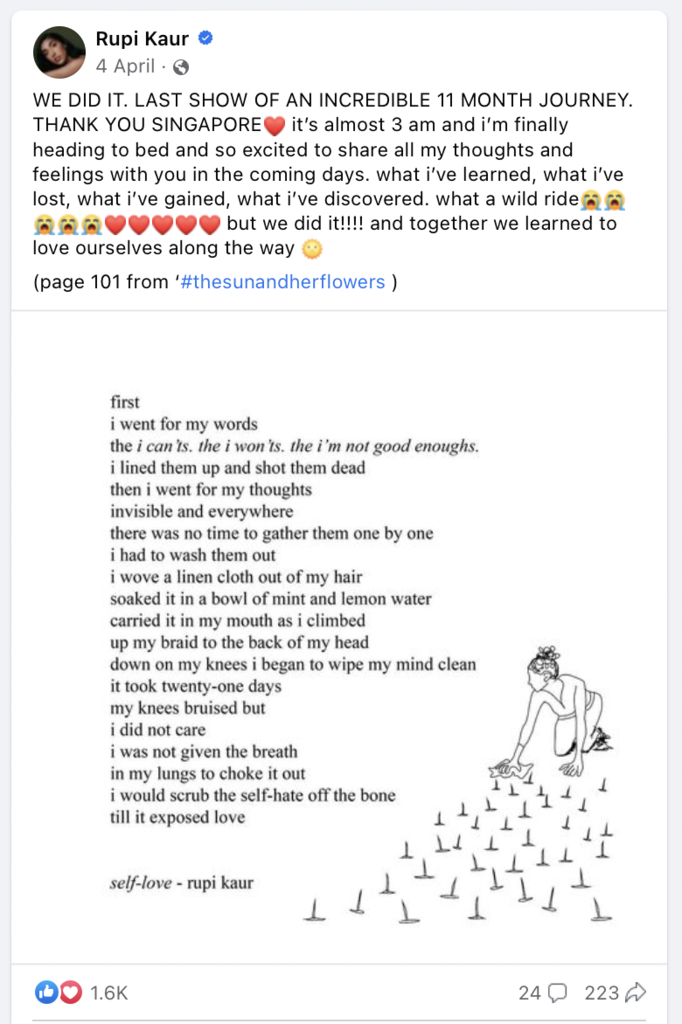
However, managing several social media platforms can be a daunting task. It's often best to choose one platform — where your Ideal Reader is most likely to be — and focus your energy there. It's better to have a strong, engaged presence on one platform than to spread yourself thin across multiple channels.
Lastly, remember that social media is about interaction, not just broadcasting. Consider using social media management tools to efficiently monitor and interact with your audience, making your online presence even more effective. This not only strengthens your author brand but also fosters a community around your books.
Developing your author brand is a journey, one that requires careful thought, consistent effort, and a deep understanding of your work and your readers. It's more than just marketing — it's about creating an immersive experience that extends beyond the pages of your books.

FREE COURSE
Book Marketing 101
Learn seven tried-and-true strategies for boosting book sales.
Remember, your author brand is as unique as your voice. It's a reflection of you, your writing, and the readers who love your work. It's not something that's set in stone — it will evolve as you grow and develop as a writer. So don't be afraid to experiment, to refine, and to learn.
In the world of writing, where there's often a focus on the next release and the next plot twist, spending time on building your author brand might feel like a detour. But it's a detour worth taking: ultimately, a strong author brand isn't just about selling books — it's about creating a lasting impression on your readers.



